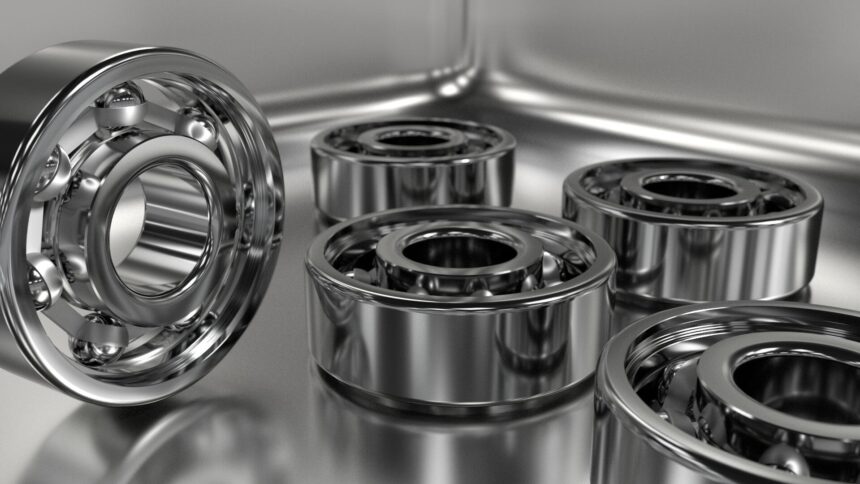Choosing the right shaft bearing is crucial for your equipment’s performance and longevity. A well-selected bearing ensures smooth operation and reduces downtime.
- Consider Load Capacity
- Pay Attention to Speed Ratings
- Don’t Forget About Durability
- Take into Account Compatibility
- Consider Maintenance Requirements
- Think About Noise Levels
- Look for bearings made to reduce noise.
- Prioritize Quality and Brand Reputation
- Consider Customization Options
- Explore Advanced Bearing Solutions
- Don’t Overlook Cost
- Master Shaft Bearing Selection for Optimal Performance
With so many options available, it can be overwhelming to decide. But don’t worry. This guide will help you find the perfect fit.
Discover how to balance load capacity, speed, and durability. Learn how to prioritize for different applications. Equip yourself with these essential tips and avoid common pitfalls. Your equipment deserves the best.
Let’s dive into the world of shaft bearings and make an informed choice together.
Consider Load Capacity
The load capacity is the maximum weight a bearing can handle without deforming. It’s essential to choose a bearing with enough load capacity for your equipment.
For heavy loads, opt for bearings made from strong materials like steel or bronze. If your equipment handles lighter loads, you can go for plastic or ceramic bearings.
Keep in mind that overloading the bearing can result in premature failure and costly repairs. Always check the manufacturer’s recommendations for load capacity before making a choice.
Pay Attention to Speed Ratings
When choosing a bearing, it’s vital to check the speed ratings. Speed ratings tell you how fast a bearing can spin before it fails. Using a bearing beyond its limit can cause overheating and damage.
High-speed machines need bearings with high-speed ratings. Regular bearings might not handle the strain and can wear out quickly. Always match the bearing’s speed rating to your machine’s needs.
For low-speed applications, standard bearings work well. They are often more affordable and easier to find. Make sure to consider all factors, not just speed, for a balanced choice.
Don’t Forget About Durability
Durability is a key factor when selecting a shaft bearing. The durable bearing lasts longer and requires less maintenance. This saves you time and money in the long run.
To ensure durability, look for high-quality materials. For example, steel bearings are strong and last a long time. However, they might be more expensive than other options.
Don’t forget to consider the working environment of your equipment. Dust, moisture, and high temperatures can affect bearing life. Choose a bearing that can withstand these conditions for better performance.
Take into Account Compatibility
When selecting a bearing, compatibility with your equipment is crucial. Ensure the bearing fits well with your existing components. Incorrect sizing can lead to inefficiencies and damage.
Think about the type of motion your equipment uses. Is it rotational or linear motion? Different motions need different bearings. Getting this right is crucial.
For specific needs, consider a round linear bearing shaft. It offers smooth motion in a straight line. This type of bearing is ideal for precision and flexibility in various applications.
Consider Maintenance Requirements
When choosing a bearing, think about how much maintenance it needs. Some bearings require regular lubrication to stay in good shape. Check the maintenance schedule before deciding.
Low-maintenance bearings can save you time and effort. Sealed bearings are a good option as they keep out dirt and debris. This can reduce the need for frequent cleaning and re-lubrication.
Proper maintenance can extend the life of your bearing. Follow the manufacturer’s guidelines for the best results. Keeping up with maintenance can prevent unexpected breakdowns and keep your equipment running smoothly.
Think About Noise Levels
Choosing the right bearing means thinking about noise levels. Some bearings are quieter than others. For a peaceful work environment, go for low-noise bearings.
High-noise bearings can be annoying. They can also cause stress and discomfort. Keeping the noise level down helps everyone stay focused and happy.
Look for bearings made to reduce noise.
Bearings with special designs or materials are quieter. High-quality bearings usually make less noise. Check the specifications to find the best option.
Prioritize Quality and Brand Reputation
When choosing a shaft bearing, always think about quality. High-quality bearings last longer and work better. A good bearing can save you money in the long run.
Brand reputation matters too. Well-known brands often have the best products. They have a history of making reliable and durable bearings.
Read online reviews and ask for advice to find the best brands. Make sure to pick a bearing from a trusted name. This will help keep your equipment in great shape.
Consider Customization Options
When picking a bearing, think about customization. Custom bearings can meet your special needs better than standard ones. Talk to the manufacturer about your specific requirements.
Custom bearings can fit unusual sizes. They can also handle unique loads or high speeds. These bearings might cost more, but they perform better for your use.
Check if the manufacturer offers custom options. Custom bearings can often last longer. This leads to fewer replacements and better performance. Customization lets you get exactly what you need.
Explore Advanced Bearing Solutions
Advanced bearing solutions can improve your equipment’s performance. Linear motion systems are a popular choice for many applications. They provide precise movement and reliability.
Linear bushing is a great option for reducing friction. These bushings help your equipment run smoothly. They also extend the life of your bearings.
Roller guides offer another advanced solution. They support heavy loads and provide consistent performance. Roller guides are ideal for demanding environments.
Don’t Overlook Cost
When picking a shaft bearing, always think about the cost. Budget is important, and you need to balance quality and price. Expensive bearings are not always better.
Consider the total cost of ownership. Sometimes, a cheaper bearing can cost more in the long run. Frequent replacements or repairs can add up quickly.
Look for value rather than just a low price tag. A good quality bearing can save money over time. Always weigh the initial cost against the long-term benefits.
Master Shaft Bearing Selection for Optimal Performance
Choosing the right shaft bearing is essential for maintaining optimal performance and longevity of your equipment. By considering factors like load capacity, speed ratings, durability, compatibility, maintenance, noise levels, and cost, you can ensure a well-informed choice. Prioritizing quality and exploring advanced solutions will further enhance your equipment’s efficiency.
Remember, investing time in selecting the right shaft bearing can significantly reduce downtime and save on long-term expenses. Equip yourself with this knowledge for the best results.
Check out our other articles today! Search for something you’re interested in and see what other content we have!












